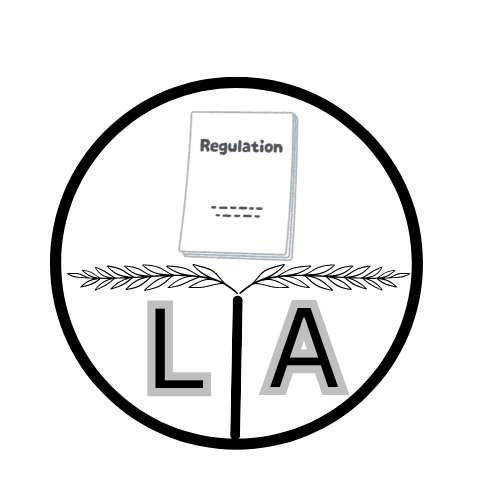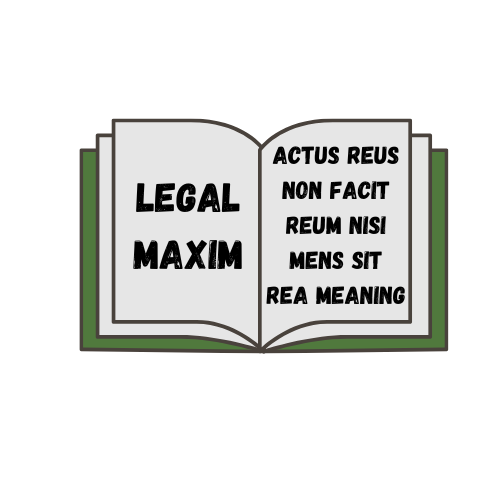Actus Reus Non Facit Reum Nisi Mens Sit Rea meaning
Actus Reus Non Facit Reum Nisi Mens Sit Rea meaning
Actus Reus Non Facit Reum Nisi Mens Sit Rea meaning
Actus Reus Non Facit Reum Nisi Mens Sit Rea meaning
Actus Reus Non Facit Reum Nisi Mens Sit Rea meaning
Actus Reus Non Facit Reum Nisi Mens Sit Rea meaning
Actus Reus Non Facit Reum Nisi Mens Sit Rea meaning
Introduction-
The maxim “Actus Non Facit Reum Nisi Mens Sit Rea” is a Latin Maxim derived from “Doctrine of Mens Rea”.
- It is constituted from two legal terms: “Actus Reus” (wrongful act) + (wrongful intention) “Mens Rea” = Crime (wrongful act committed with wrongful intention).
Meaning- Actus Reus Non Facit Reum Nisi Mens Sit Rea
“An act does not make a person guilty unless there is a guilty mind.” i.e, “An act does not make anyone guilty unless there is a criminal intent or guilty mind.”
Actus Non Facit Reum Nisi Mens Sit Rea is a legal principle that means you cannot be guilty of a crime unless both an action and a guilty state of mind are present.
In simple terms, just doing something wrong (actus reus) doesn’t make you guilty. You also need to have a guilty mental state (mens rea). Without both of these elements, an act cannot be considered a crime. This principle highlights the importance of having both the action and the intention to commit a crime.
Example : If a person walking beside the road and then accidently jumps on to the car without any intention of casuing harm or injury. The act of jumping accidently has occured (actus reus) , there is no guilty mind or intention (mens rea) behind it. The absence of mens rea would prevent the act from constituting a crime.
Provisions-
• Section 14 of The Indian Evidence Act 1872
• In IPC –
The principle of actus non facit reum nisi mens sit rea means “an act does not make a person guilty unless there is a guilty mind.” This is an important idea in criminal law. The Indian Penal Code (IPC) of 1860 includes this principle in two key ways, showing the importance of both actions and intentions in deciding guilt.
First, the IPC clearly states that a person must have a certain mental state, or mens rea, when defining various crimes. This means that just committing an act is not enough to be found guilty; the person must also intend to commit the act or at least be aware of the results. Different crimes under the IPC require different levels of mens rea, which ensures that the accused person’s state of mind is considered in court.
Exceptions :
Second, the IPC contains ‘General Exceptions’ in Chapter 5. These exceptions explain specific situations where a person may not be liable because they lack mens rea. They recognize that some people may not have the guilty mind needed, even if they committed the act. Examples include mistakes of fact, where a person mistakenly believes something that would make their act innocent; accidents that happen without intent or negligence; children below a certain age, who cannot be held criminally responsible; and individuals with mental illness, who may not understand the nature of their actions.
Together, these parts of the IPC provide a full view of criminal liability. They focus not only on what people do but also on the mental state behind their actions. This approach aims to create a fair legal system that upholds the idea of moral responsibility.
Case Laws :
Commissioner of Sales Tax v. Rama and Sons, General Merchant, Ballia
Brend v. Wood,
State of Rajasthan v. Shera Ram
Kartar Singh v. State of Punjab,
Conclusion :
Actus Non Facit Reum Nisi Mens Sit Rea is a key idea in criminal law. It means “A person is not guilty of a crime unless they have a guilty mind.” This principle states that both the action (actus reus) and the intention behind it (mens rea) are necessary to prove someone is guilty.
This principle helps protect people from being wrongly punished for actions done without criminal intent. By requiring proof of both the action and the intention, the legal system aims to ensure fair judgment in criminal cases.
Penology and Victimology Notes : https://lawadhoctutorials.com/penology-and-victimology-notes/
Penology and Victimology Notes PDF : https://lawadhoctutorials.com/penology-and-victimology-notes-pdf/
Education of Prisoners Notes : https://lawadhoctutorials.com/education-of-prisoners/
Vocational Training for Prisoners notes : https://lawadhoctutorials.com/vocational-training-for-prisoners-in-india/
Rights and Duties of Prisoners notes :- https://lawadhoctutorials.com/rights-and-duties-of-prisoners/
Model Prison Act Notes : https://lawadhoctutorials.com/model-prisons-act-2003/
All subjects law notes : https://lawadhoctutorials.com/subject/
All subjects law notes in pdf : https://lawadhoctutorials.com/notespdf/
Law of torts lecture link on YouTube: https://youtu.be/fRx-i5fk3jo?si=QPnyduoa3IeZoI5W
Free and easy to access law notes. The law notes are available for all law subjects. Please check the below-mentioned list for complete law notes.
Click on the specific subject to view its notes.
Reference : https://lawbhoomi.com/actus-non-facit-reum-nisi-mens-sit-rea/
https://www.legalserviceindia.com/legal/article-14667-actus-non-facit-reum-nisi-mens-sit-rea.html
Actus Reus Non Facit Reum Nisi Mens Sit Rea meaning
YouTube Link for other important legal maxims for CLAT : https://youtube.com/shorts/rxu5vMPa4kQ?si=PiNEBr2Q146LN8wI
Law of Torts Notes pdf : https://lawadhoctutorials.com/law-of-torts-notes/
https://lawadhoctutorials.com/notespdf/



